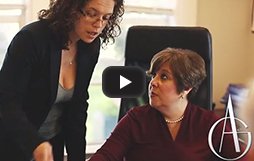What Can I Do if my Collaborative Divorce is Not Making Progress?

Ideally, a collaborative divorce is a straightforward process through which a divorcing couple determines the terms of their divorce settlement, such as how their assets will be divided and whether one party will receive alimony. Many couples begin this process confident that they will be able to create a mutually-satisfying divorce settlement through collaboration.
In many cases, collaborative divorce works. But this is not true in all cases. After starting the collaborative divorce process, a couple might find that they cannot work together as easily as they initially thought possible. They might also find that there are issues to determine in their divorce that require guidance from a professional. If your collaborative divorce is not progressing as you had hoped it would, consider one or more of the following strategies to get it back on track.
Speak to Your Lawyer and the Team
If you get caught up on one aspect of your divorce, consider speaking with your lawyer and other members of the Professional Team to gain better insight as to ways to overcome hurdles . For example, you might want to discuss mediation or bringing in an allied neutral, such as a financial advisor to facilitate resolution.
It can also be helpful to speak with the Mental health neutral on your Team if you feel your Team is stuck. Sometimes a new Collaborative lawyer may make all the difference. Discuss conflict resolution and ways you may assert your interests and rights without de-railing the process.
Reassess your Goals with your Spouse
If you find that you and your spouse have different goals for the divorce, talk to your lawyer and the team about these goals to evaluate where your goals align and where they differ. By hearing him or her discuss his or her goals out loud and sharing your own goals this way, it can be easier to put yourselves in each other’s positions to determine a fair divorce settlement that makes you both happy.
Accept that you Need to be Flexible
This is the most important part of a collaborative divorce. You need to be willing to be flexible and accept that you will not walk away from the divorce with everything you envisioned for your settlement. Work with your lawyer to identify the items you care most about, those you are willing to compromise on, and those you can accept “giving” to your spouse.
Consider all Options
Some divorces just cannot be completed through the collaborative process. As a last resort, if you find this is the case in your divorce, you might need to try another divorce strategy, such as mediation or litigation. This means starting the divorce process all over again for litigation, with a new lawyer. Your lawyer may not realize that the process is not working for you; he or she may be able to tell you from experience that the frustration you are feeling is normal and will subside as the process continues. Most importantly, don’t bottle up your feelings. Collaborative divorce is an interest-based method of dispute resolution. If your interests are not being met, be certain to say so. Collaboratively trained professionals are taught the tools to push through obstacles that impede the process.
Work with an Experienced Orlando Collaboratively-trained Divorce Lawyer
A collaborative divorce can be an easy, satisfying way to end your marriage. But you might find that it is not the ideal way for you and your spouse to divorce. For representation through the divorce process, Collaborative or not, work with an experienced Orlando divorce lawyer. Both lawyers at our firm are Collaboratively trained and handle Collaborative and litigation cases as well. Contact our team at Goodblatt · Leo today to set up your initial consultation with a member of our firm.
Resource:
leg.state.fl.us/Statutes/index.cfm?App_mode=Display_Statute&URL=0000-0099/0061/Sections/0061.08.html






